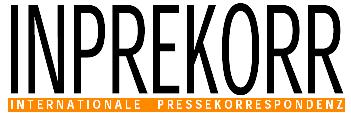Άρθρο από το International Viewpoint για το φοιτητικό κίνημα στην Αυστρία
___________________________________________
Students occupy universities;
mass demonstrations and broad solidarity throughout the country
Τhroughout the last few years, studying conditions at Austrian universities have dramatically declined. The introduction of tuition fees, a massive cutback of democratic structures and lack of course availability are only some examples. Reasons can be found in the huge decline in university funding on the one hand and the introduction of the three-level "Bologna" system on the othe, resulting in the implementation of admission reductions and limits.
On October 22, students’ dissatisfaction turned into savage protest. At noon several hundred students from the Academy of Fine Arts (which was occupied the day before) and the University of Vienna gathered to make known their desperate situation. In a spontanious action they squatted in Austria’s largest auditorium in the main university building. The news of the occupation spread rapidly and soon students from several other departments joined.
What started as a spontanious act of protest, within the course of just a week, evolved into massive student protests throughout all major Austrian university cities. The University of Vienna, for example, has been constantly occupied by several thousand people. Self-organised action groups have built an efficient infrastructure that includes a public kitchen, first aid and legal consulting. In addition to that 100 work groups have been formed, whose main subject is the discussion of strategy and denands.
On October 28, seven days after the initial occupation, Vienna witnessed one of the largest education-related rallies in Austrian history, with 40,000 people taking part. The following day, in Graz, Austria’s second-largest city, a demonstration with several thousand people took place.
The students have presented a broad catalogue of demands to government and university policy makers. Demands include the democratisation of all aspects of university life, a massive increase in funding, free and equal admission for all with the necessary qualifications and the implementation of accessible/barrier-free studying for those with special needs. The students are also calling for a ``50% women’’ clause for all positions in university administration and the education system.
Along with various organisations and groups from all corners of Austrian society and the world, many university professors and administrative staff have demonstrated their solidarity with the protesting students. This and the incredible power and hope that has developed, encourage the movement to persist and grow until the students’ demands are met.
The movement that has formed in the wake of the protests is opening up free social spaces, practising grassroots democracy and invigorating university life with self-organised lectures, workshops and task groups. Students are getting involved in an unprecedented fashion and are receiving great public support for their concerns.
Leading figures from politics, culture and society at large consider the protest movement as a seismograph for problems that reach far beyond the education system. So far, more than 350 university lecturers and researchers have declared solidarity with the occupying students and many actively participate in the protests. The highly precarious working conditions that university staff increasingly face, including short-term contracts and little job security, has a detrimental effect on the quality of research and teaching.
After the widening of the protests and the numerous declarations of solidarity from all over the world, the Austrian government finally reacted. The minister of science and research Johannes Hahn promised 34 million euro from the ministry’s reserve budget. The protesters believe this gesture is not in the least adequate to effectively solve the range of structural problems.
Furthermore, there is criticism that the minister still has not approached the protesters to discuss their demands in detail. On November 5, the protest movement is planning a nationwide day of action in order to strengthen their demands and further encourage public debate about the Austrian education system.
Contact the students of the Occupied University of Vienna at:
mail: internationalpress.unsereuni@gmail.com,
tel: +43 699 1920 3371
site: http://www.unsereuni.at
Nov 3 2009





















0 σχόλια:
Δημοσίευση σχολίου